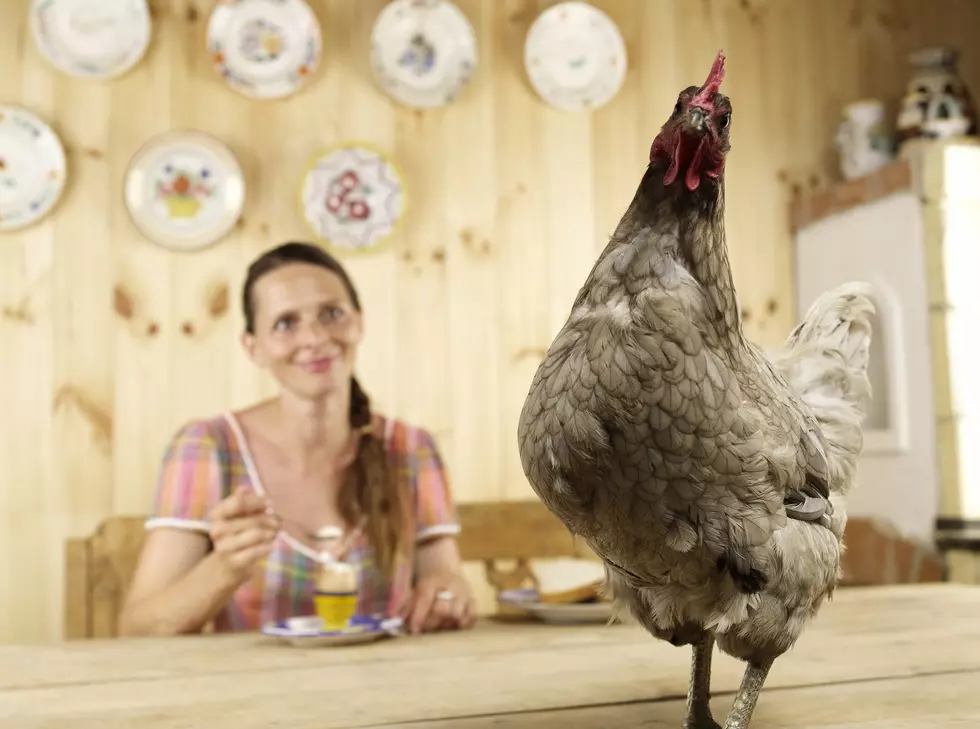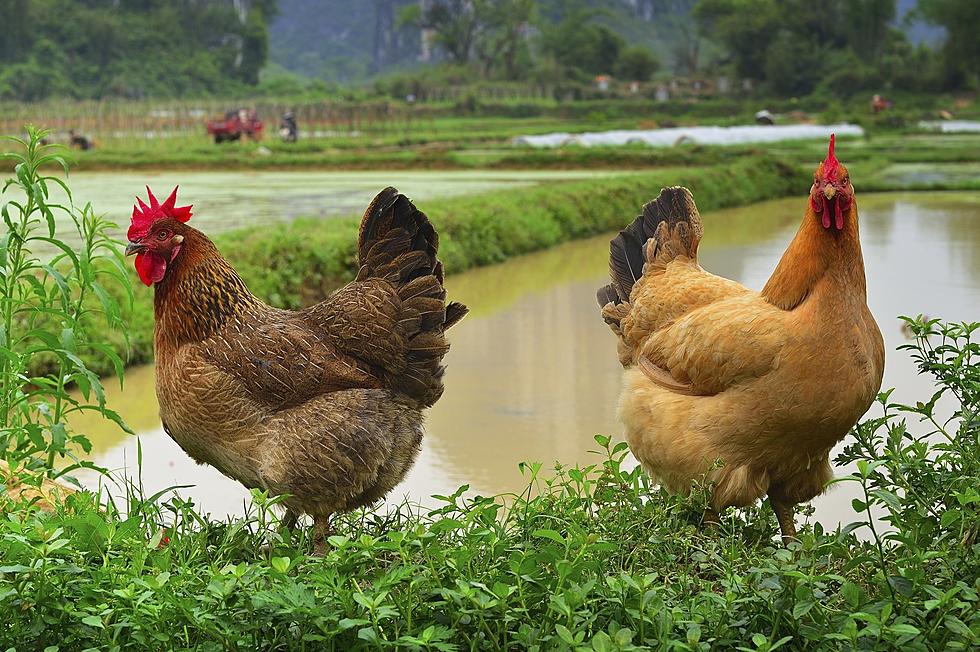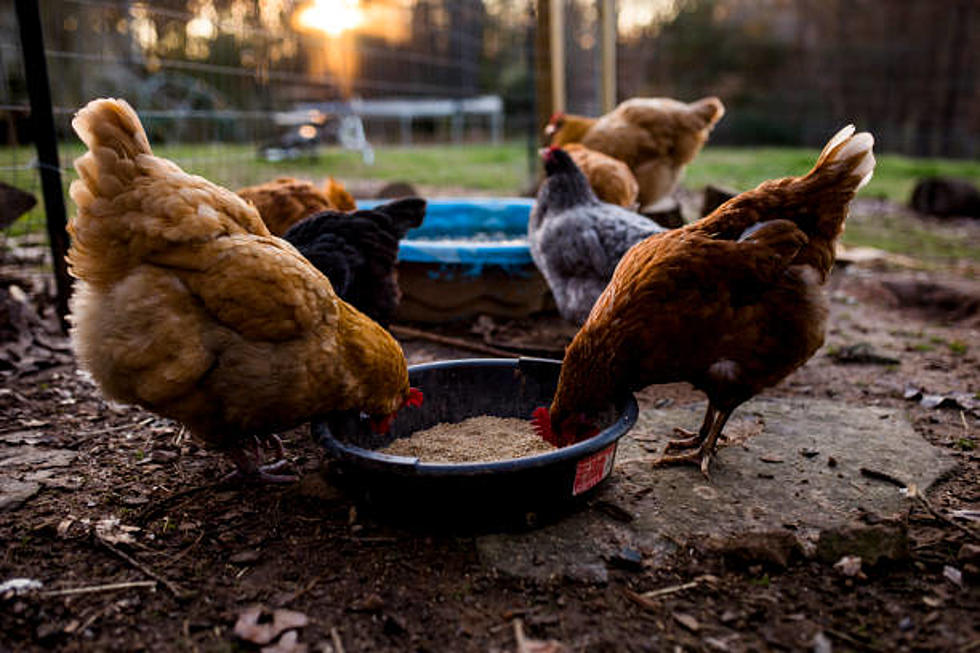
7 Things to Consider Before Committing to Backyard Chickens in Colorado
There are a lot of chickens living in the backyards of city houses in Colorado. A lot more people have been considering this adventure with the current high cost of eggs at the grocery store. We have kept around 10 chickens for almost 3 years.
1. The Initial Setup is Expensive
The little baby chicks are so cute. Sure, a little baby chick is only $4 on average, but there's a lot more to it. The prices listed here are from the Tractor Supply website. Chicks need a heat lamp($12.99), wood shavings($6.79), something big and secure to put them in that won't melt from the heat lamp($0-$100), starter feed($26.99), a feeder dish($6.99), small water jar($8) and electrolytes($2.99). Let's say you pick out 6 little fluffy butts to get started with. This setup will be what you use until they are about 6 weeks old. Assuming you have an old trough or something to put them in, your initial setup will be around $100.
Once they are big enough to move outside to a coup and the weather is warm enough. The setup changes. Now you need a secure coup($300), wood shavings for laying boxes($6.79), sand or similar for ground($20), a much larger feeder($10), and a large waterer that has the ability to keep from freezing during the winter($53). You may need to prevent predators from getting to your ladies with chicken wire fencing. Assuming you will need to buy one of the cheapest coup kits you can buy the cost of your permanent chicken setup will be around $400.
I speak from experience when I say that cheap coup setups don't last forever. We are 3 years into ours and it's getting pretty flimsy.
2. They are Not Free to Feed
The options are endless for what you can feed your chickens. Cracked corn, the cheapest feed in a bag, table scraps, organic soy/corn-free feed, homemade feed, etc.
An average bag of chicken feed will last you a month with 6 chickens and costs $13.49.
3. Your Chickens Will Get Attacked/Killed by Something
There are so many predators that want your chickens. Owls, foxes, raccoons, hawks, dogs, and skunks seem to be the most common backyard chicken predators in Colorado. Owning chickens is playing a lot of defense.
I shared a video a while back of several owls waiting to attack some chickens.
My friend Jillian who lives in Fort Collins said "I loved having backyard chickens more than I expected to. That is until they all got murdered by raccoons or hawks."
4. Chickens Only Have So Many Eggs to Lay, Then What?
When chickens first start laying eggs you will have more eggs than you know what to do with. Learn how to make quiche! Turns out chickens only have a certain amount of eggs to lay in their lifetime. It averages about 600 eggs according to Backyard Poultry. Depending on the breed of chicken they could lay 150 eggs a year or 300.
So, that means some chickens are basically done laying eggs around age 2. Most chickens live between 5 and 10 years. That could be a long time to have a free-loading chicken. Some people butcher them when they are done laying. Many do not.
5. Eggs Do Not Always Come Out Clean
Chickens have one hole, called a vent. They poop and lay eggs out of this one hole. Most of the time, the egg comes out clean and falls nicely onto a soft pile of bedding. Sometimes the egg comes out with poop or blood on it and lands in a hard-to-reach part of the coup.
Chicken eggs can sit at room temperature for several weeks if you do not wash them because they have a cool protective coating called a bloom. Once you wash them, washing the bloom off, they need to go in the fridge.
The dirty/poop smear eggs really bother a lot of people, even though it's very easy to wash them. Washing and refrigerating eggs seem to mostly be a United States thing.
6. Winter Requires Extra Care and They Don't Lay Many Eggs
Chickens need fresh water at all times. Water freezes. Freezing cold weather presents all kinds of extra work to keep chickens healthy. Chickens can also get frostbite, which can turn their comb(the thing on top of their head) black. Ouch!
The other problem with winter is a lack of daylight hours, which means fewer to no eggs. Their bodies go into "rest" mode when there is less daylight. Yes, chickens barely produce eggs for most of the winter. I guess they didn't get the memo that store-bought eggs went up in price at about the same time.
7. Chickens Can Get Mites, Bumblefoot, Prolapse and Much More
Are you a vet? I'm not, but I had to learn real quick how to do basic care for my chickens. Just catching a chicken to tend to the most basic cut is not easy. There are lots of pretty common things that can happen to chickens that will require extra attention and care. Oftentimes you have to quarantine a chicken to let it heal. Dog crates work well for that.
Joining backyard chicken groups on Facebook has been a super valuable resource.
Honestly, I love having chickens in my backyard, but I don't think it's been cost-efficient for us yet. Not when I can get 2 dozen organic cage-free eggs at Costco for $8.

The Top 11 Easiest and Prettiest Hikes Around Fort Collins
More From Wake Up Wyoming









